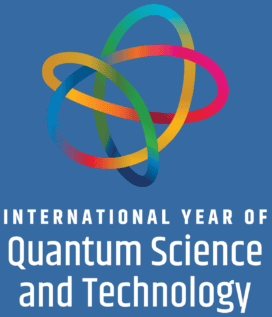What skills do you use every day in your job?
Beyond the technical skills tied to specific aspects of my research, my work involves continuously engaging a balance of creativity, critical thinking and curiosity. Creativity alone isn’t enough – in physics, ideas must ultimately stand up to scrutiny. Something is either right or it isn’t, so the goal is to let your imagination run free, while keeping it anchored to scientific rigour.
This balance becomes especially important when it comes to defining your own research direction. Early in your career, you’re usually handed a problem to work on. But, over time, you have to learn to ask your own questions, and formulating good ones is much harder than it sounds.
In the beginning, most of the ideas you come up with turn out either to be flawed or have already been explored. The alternative is to stay in safe territory and do incremental work, which certainly has its place, but it’s difficult to build a research career on that alone.
What helps is staying curious. Finding a meaningful research question often means diving into unfamiliar literature, following sparks of interest, and carving out time to read and think critically. It also means being open to inspiration from other people’s work, not just from research that overlaps with your own, but potentially from entirely different areas.
To me, one of the most precious traits in research is the ability to keep your curiosity alive
I’ve seen how easy it can be to fall into the trap of only valuing ideas that align with your own. To me, one of the most precious traits in research is the ability to keep your curiosity alive: to remain open to surprise, ready to recognize when you’re wrong, be willing to learn, and to be excited by someone else’s discovery, even when it has nothing to do with your own work.
What do you like best and least about your job?
What I like best is the freedom. I get to choose what my next research project will be about, and sometimes that process starts in the simplest of ways. I see an exciting talk at a conference, become fascinated by a new idea, and find myself reading everything I can about it. I’ll come back, pitch it to a student, and if they’re excited too, we explore it together.
When I start something new, I often feel like an imposter, venturing into foreign territory and trying to operate as if I know my way around, but as time goes on, things start to fall into place. Eventually, you reach the point where you create something new that others in the field may find interesting or inspiring in turn. That moment – when a once-distant topic becomes something you have actually contributed to – is deeply rewarding.
What I like least is answering e-mails. As a student, I couldn’t understand why some professors took ages to reply. Now I do. Some days, my inbox just fills up endlessly, and responding thoughtfully to every message would take the whole day. It’s a balancing act, deciding when to say yes and when to say no, and learning to say no in a considerate and fair way takes time and emotional energy. You want to be generous with your time, especially when someone genuinely needs help, but finding this balance can be exhausting. It’s an important part of the job, but I wish it took up a bit less space.
What do you know today that you wish you’d known at the start of your career?
That everyone feels like an imposter sometimes. When I started out as a student, I looked around and assumed everyone else was an expert, while I was just trying to find my way, painfully aware of how much I didn’t know. Over time, you do gain confidence in certain areas, but research constantly pushes you in new directions. That means learning new things, starting from scratch, and feeling like an imposter all over again.
The first time I heard the term “imposter syndrome”, it felt like a revelation. Just knowing that this feeling had a name, and that others experienced it too, was validating. Does this mean I feel less like an imposter now? Not really. But I’ve come to understand that it’s part of the process. It means I’m still learning, still being challenged, still exploring new directions. And if that feeling never goes away entirely, maybe that’s a good sign.
This article forms part of Physics World‘s contribution to the 2025 International Year of Quantum Science and Technology (IYQ), which aims to raise global awareness of quantum physics and its applications.
Stayed tuned to Physics World and our international partners throughout the next 12 months for more coverage of the IYQ.
The post Ask me anything: Giulia Rubino – ‘My work involves continuously engaging a balance of creativity, critical thinking and curiosity’ appeared first on Physics World.


